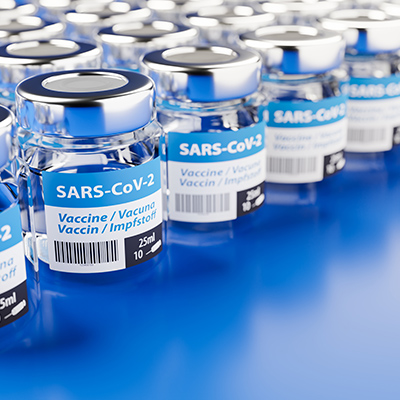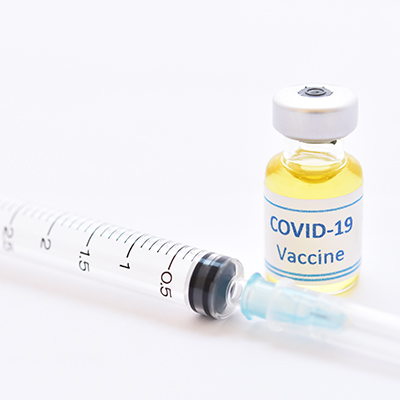November 19, 2020 -- Similar safety and immunogenicity profiles were observed in adults and older adults who received the Oxford/AstraZeneca SARS-CoV-2 vaccine candidate, ChAdOx1 nCoV-19, according to data from the phase II clinical trial. The findings were published in the Lancet on November 18.
A safe and effective vaccine that protects against SARS-CoV-2 infection is an important tool in controlling the global spread of the virus. Given that severe COVID-19 is more common in adults ages 70 years and older, a vaccine that targets this group of individuals in a safe and efficacious manner is desirable. Older adults are affected by immunosenescence, or the gradual decline of immune responses. Therefore, assessment of immune responses with careful regard to this susceptible group is essential in the development of COVID-19 vaccines.
"Immune responses from vaccines are often lessened in older adults because the immune system gradually deteriorates with age, which also leaves older adults more susceptible to infections," said lead author Andrew Pollard, PhD, professor at the University of Oxford. "As a result, it is crucial that COVID-19 vaccines are tested in this group who are also a priority group for immunization."
"The [World Health Organization (WHO)] has outlined a number of critical factors for COVID-19 vaccines, including that they must be targeted at the most at-risk groups including older adults," added co-author Sarah Gilbert, PhD from the University of Oxford.
On September 25, the U.K, Joint Committee on Vaccination and Immunization (JCVI) released recommendations for national prioritization of COVID-19 vaccines, including various groups of older adults. Similar recommendations were made by the U.S. Advisory Committee on Immunization Practices.
The ChAdOx1 nCoV-19 vaccine was developed as a replication-defective chimpanzee adenovirus-vectored vaccine expressing the full-length SARS-CoV-2 spike glycoprotein gene. Studies with nonhuman primates found that a single dose of the vaccine generates humoral and cellular immune responses and protects the lower respiratory tract from infection. Preliminary results of phase I/II human clinical trials in adults demonstrated that the vaccine candidate is well-tolerated and generated neutralizing antibodies and cellular immune responses against the spike glycoprotein.
Now, researchers from the University of Oxford have released promising results from the phase II clinical trial of the vaccine candidate. The ongoing study is a single-blind, multicenter, randomized, controlled phase II/III safety and efficacy study.
Between May 20 and August 8, 560 participants were enrolled in the study including 100 adults (ages 18-55 years old) who received the ChAdOx1 nCoV-19 and 60 who received the control vaccine; 120 adults ages 59-69 years old received ChAdOx1 nCoV-19, and 40 adults ages 59-69 years old received the control vaccine; 200 adults over 70 years of age received ChAdOx1 nCoV-19, and 40 adults over 70 years of age received the control vaccine.
Study recruitment occurred during a national lockdown in the U.K. when vulnerable individuals were advised to self-isolate. For this reason, the study includes only healthy participants and not those with co-morbidities.
Following vaccination, participants were monitored for a minimum of 15 minutes, and participants recorded any adverse events for 7 days post-vaccination. Participants will continue to be followed for one year following final vaccination. Those individuals who received two doses had their immune responses assessed on the day of vaccination, and day 1, day 2, and 4 weeks post-vaccination.
The team found that the ChAdOx1 nCoV-19 vaccine was safe and well tolerated with a lower reactogenicity profile in older adults than in younger adults. Immunogenicity was also similar across age groups after a boost vaccination. The study also found that the vaccine causes few side effects in all age groups and at low and standard dose.
The ChAdOx1 nCoV-19 vaccine induced a specific antibody response to the SARS-CoV-2 spike protein and the receptor-binding domain and neutralizing antibodies at 28 days after a single dose across all age groups. Notably, anti-spike antibody responses in the study increased after a boost vaccination at one month but neutralizing anti-vector antibody responses did not. There were also spike-specific T-cell responses that peaked 14 days after prime vaccination which were similar in all age and dosage groups.
"The robust antibody and T-cell responses seen in older people in our study are encouraging," added co-author, Dr. Maheshi Ramasamy, PhD, from the University of Oxford. "The populations at greatest risk of serious COVID-19 disease include people with existing health conditions and older adults. We hope that this means our vaccine will help to protect some of the most vulnerable people in society, but further research will be needed before we can be sure."
The phase III portion of the study is ongoing in the U.K., Brazil, and the U.S. to assess vaccine efficacy and safety in a broader range of people, including older adults with underlying health conditions.
"Our new study answers some questions about protecting older adults, but questions remain about effectiveness and length of protection, and we need to confirm our results in older adults with underlying conditions to ensure that our vaccine protects those most at risk of severe COVID-19 disease," Gilbert explained.
Do you have a unique perspective on your research related to vaccines or infectious diseases research? Contact the editor today to learn more.
Copyright © 2020 scienceboard.net










